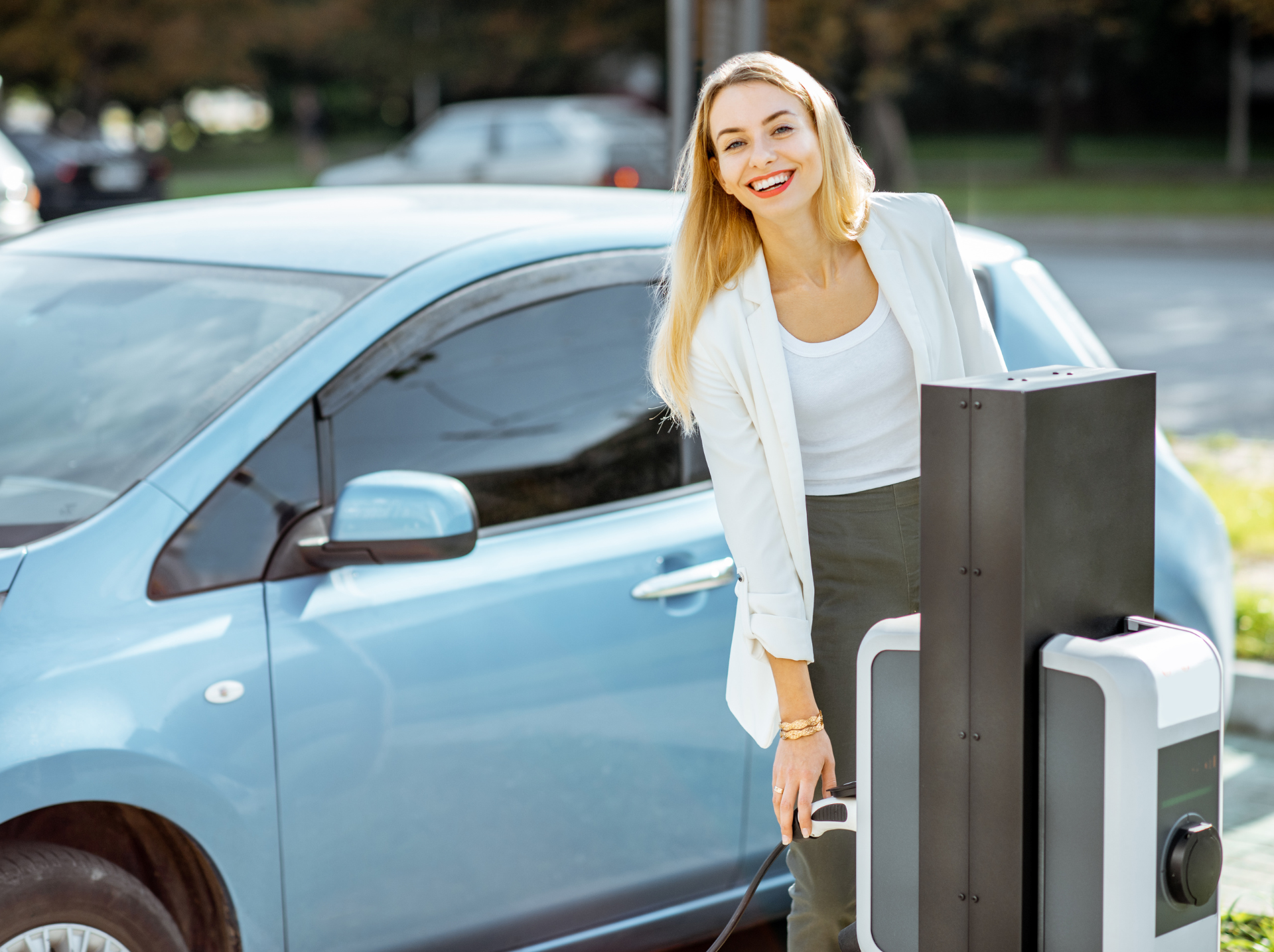How Venture Builders Are Shaping Future of Electric Vehicles?

Nations around the world are worried about the carbon emissions from public and private vehicles. It is driving manufacturers to consider electric vehicles (EVs) as the best alternative to fuel-driven automobiles.
Even car buyers consider EVs a top choice. Thus, changing buyer interests and socio-political events are broadening the market for venture builders to invest in EV startups.
In this article, we discuss how venture builders see EVs as a revolution in the automobile industry.
How are Corporate Venture Builders Influencing EV Startups?
Primarily, corporate venture builders are looking to expand brand performances and revenue channels. They are conducting expansions by investing in new and innovative startups.
EV investments by venture capitalists in India and other countries saw a drop in 2023. However, investments in the Indian EV industry rose in the following year.
This was speculated to be boosted by the government's initiatives. These initiatives focused on increasing EV production and making more made-in-India products.
Key Players in the EV Venture Building Space
The EV venture-building space is crowded with the automobile giants. There are new wings for EV productions, EV startups, venture builders and capitalists.
Established Automobile Giants in EV
Many established MNCs have created their EV development wing or self-funded startup to utilize market opportunities.
-
Xiaomi: Xiaomi, a leading smartphone manufacturer, has invested in its EV startup Xiaomi EV since 2021. Now, in 2024, the company is the 8th largest EV seller in China after the launch of the SU7.
-
Baidu: Baidu, a self-driving tech developer, launched the joint venture, Jidu, with Geely, a renowned automotive group. Launched in 2021, Jidu secured capital of USD 700 million by Q1 2022. It has now been restructured as JI YUE with Jidu operating as its technical facilitator.
-
Google: Google has started their self-driving project under the brand Waymo. Currently operating with small four-wheelers, they are trying to venture into trucks for more space and comfort for passengers.
Top 3 Successful EV Startups
The boom of EVs in India can be credited to government funding. Between 2018 and 2024, EV startups in India raised USD 2.7 billion.
Therefore, startups with fresh ideas and strategic outlooks are getting financial support from both national and international sources.
Some of the key EV startups are:
-
BluSmart: BluSmart started in 2019 in Gurugram. They are primarily venturing into carpool services using EV vehicles, but they own more than 3900 charging stations across India.
-
VinFast: VinFast is a Vietnamese EV manufacturer founded in 2017. They launched three EV models in 2019 that took over the EV auto industry, and they surpassed the sales of Hyundai and Toyota. VinFast invested USD 6.5 billion in the US EV production market.
-
ZOOX: Headquartered in California, Zoox works as an Amazon subsidiary. They are currently working on developing and launching new automobiles into the robo-taxi sector. They launched their completely driverless vehicles in California and expanded their operations to Nevada.
Top 4 Innovative Technologies in EV
EV manufacturers are boosting tech innovations to meet the Net Zero Emission Goal in 2050. Intense research and development are going into developing the most efficient yet cost effective EV alternatives worldwide.
Here are the top four innovative technologies in EVs.
1. Solid state Batteries
Lithium batteries have been the primary charging system to date. However, solid-state (SS) batteries promise to reduce cost and improve performance. It has more energy stores in compact packages compared to the lithium ones.
Vehicles using SS batteries run longer and are lightweight.
2. Regenerative Braking
Cars with regenerative braking systems have single-pedal brakes that can be challenging to get used to initially. However, it makes the ride more comfortable once you get used to it.
Besides, regenerative braking helps save energy while driving, presenting opportunities for future innovations.
3. Autonomous Driving System
Electronic vehicles have layers of automation on the motor. Levels 1 and 2 automation assist drivers, and levels 3 and 4 will give semi-autonomous driving systems. Level 5 of this tech innovation includes self-driven car facilities.
A few examples of autonomous systems are lane-keeping systems, adaptive cruise control, lane departure warning systems and automatic emergency braking.
EV startups must use this to create more automation opportunities in the vehicles.
4. Solar Roofs
Scientists are trying to make EVs more energy efficient with the help of solar roofs. The roofs generate electricity from the sun for the car’s use. This provides 15% greater autonomy, reducing the need for charging stations and lowering operation costs.
Market Trends in EV Sector
1. Indian Market
The sale of electric vehicles went upwards in 2023. In India alone, it increased by nearly 47% reaching 1.5 million EV sales last year. It opens a positive market trend in 2024 where people will see a wider range of EV launches.
2. US Market
Despite 2023 setting a positive course for the next year, regulatory situations might out a challenge ahead of the EV industry. The new guidelines of tax credits in the US have cut down the eligible vehicles from 40 to 30 EV models.
3. European Market
European countries did not see increased EV sales like India. After new rulings in the ‘Climate and Transformation fund’ many saw a dip in car sales in December 2023. However, Norway's EV car sales shined through this phase with 95% EV sales.
Increased Market Trade for Used EV Models
The trend is also hinting at an increase in exports and imports of refurbished cars across countries. These numbers have increased during 2020-2021.
In 2021 China was exporting about 20,000 used cars which increased to 70,000 exports in 2022. Used car trading also increased in the European Union. There was a year-on-year increase of 70% during 2021 and 2022.
Future of EV Startups in India
Based on the current market trends, industry analysts predict that future is full of opportunities for EV startups in India.
The Indian government has set some ambitious targets for EV brands. They are supporting the industry with policies like the National Electric Mobility Mission Plan (NEMPP) and the Faster Adoption and Manufacturing of Electric Vehicles Scheme (FAME).
The finance ministry had announced tax reductions on EV productions in the 2024 national budget.
There are economic opportunities for EV startups in India with the massive fleet operator services and growing real estate companies. Both these industries are important to the national economy.
Moreover, India has a 1.4 billion population. A large-scale EV sale in the country will impact the dependent parts of the global electric mobility market.
However, there are some challenges for the EV players to deal with. The EVs function at below-par battery manufacturing capacity. Also, there is a lot of resistance from Indian consumers.
Startup owners need to find cheaper sources of energy and need to create more awareness among general customers. For that, they can adopt digital marketing strategies to effectively position their brand and products.
Final Thoughts
The future of electric vehicles is getting prepared for transforming the global transportation scenario. Countries like India and China will continue contributing to the EV market on a larger scale.
Electric Vehicle startups are expected to increase their performances and invest in sustainable and innovative additions to present models. They have many challenging areas to work on and are getting increasingly funded by venture capitalists.
However, large populations like in India are yet to be aware of the revolutionary benefits of using EVs. EV startups and established brands must up their game with brand and product promotions using digital media.
Book a call with GrowthJockey experts to understand how to crack the marketing deal to reach a wider audience.
FAQs
1. How is the Indian government helping the EV sector?
The Indian government has stepped up in helping the EV sector. They are introducing new policies in 2024. This includes payment security measures to provide interest free capital to EV startups in India.
Besides, the third stage of the ‘Faster Adoption and Manufacturing of Electric Vehicles’ (FAME 3) program is set to launch soon. It will be funded with INR 10,000 crore.
2. Which EV startups are likely to survive long term?
EV startups have witnessed a drop in cash flows, yet many brands are adapting measures in the face of such challenges.
Companies like Lucid are planning on product diversification and market expansions. Another example is VinFast which is increasing its exports to the US as a measure to expand its market. Some other examples are Polestar, Rivian, BYD and Canoo.
3. What are future EV charging technologies?
Several innovations are underway in the EV charging industry. Firstly, scientists and manufacturers are planning on pop-up charging stations to reduce street clutter.
Secondly, lamp–post chargers will use the existing infrastructure and make them more functional. Lastly, other advances include electrified roads, Vehicle to Grid (V2G) technology and Vehicle to X (V2X) technologies.








